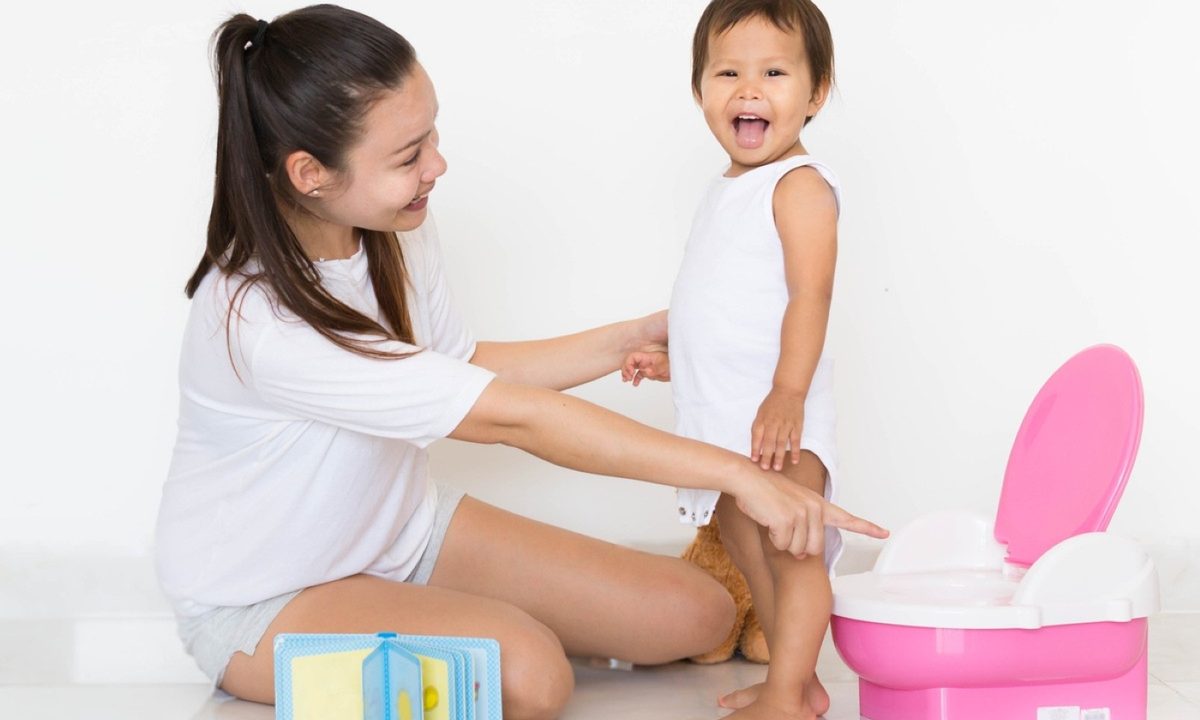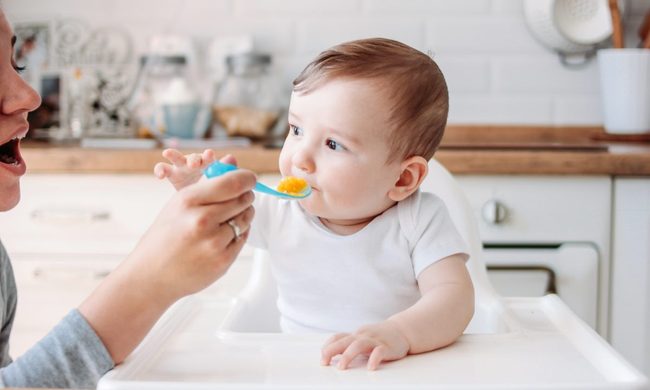Potty training is a huge milestone for both the child and the parent. The child gains confidence and independence, not being labeled as a baby in diapers anymore, and getting to use the bathroom like a big kid is a huge deal. For parents, the milestone of not having to change diapers anymore — and not having to buy diapers anymore — might bring out a little happy dance.
But sometimes, milestones hit a bump in the road. If your child has been potty trained, but you notice a slip in their progress all of a sudden, you could have a case of potty training regression on your hands. Here’s what that looks like and how you can get your child back in the swing of things.
What is potty training regression?
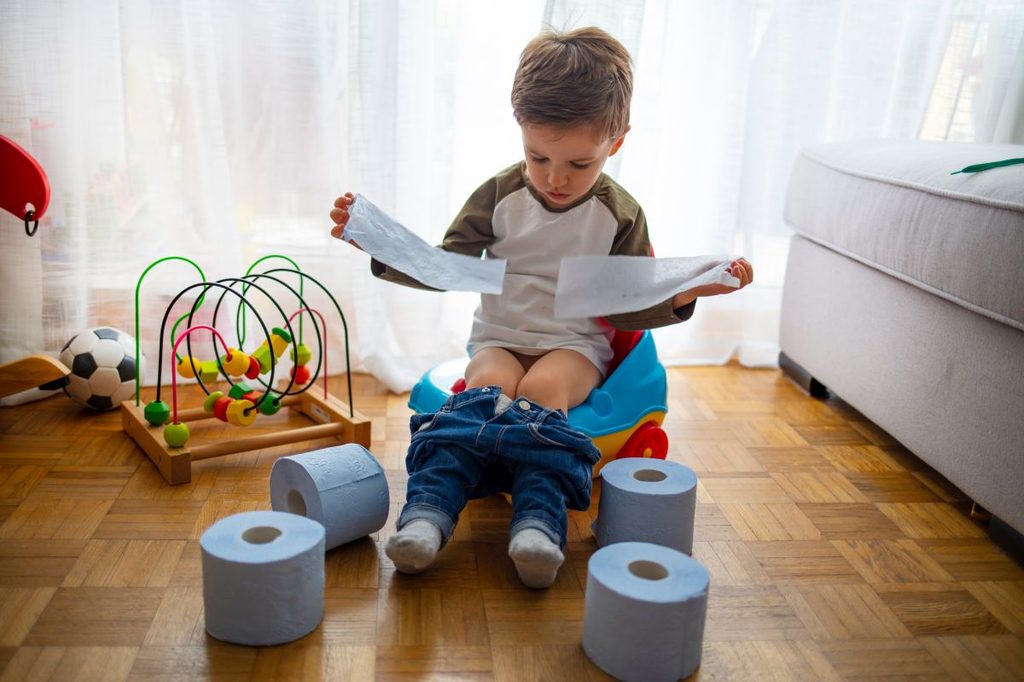
Potty training regression is when a child has been potty trained but starts to become reluctant to use the toilet, becomes scared of the bathroom, wants to wear pullups or diapers again, and starts having accidents similar to when they first started to potty train.
For it to be regression, the child has to have successfully been potty trained completely. Once things like accidents and refusing to use the toilet re-enter the game after a child has been potty trained, then it’s potty training regression.
Signs of potty training regression
There are a few things to look for to know if your child is in regression. You want to look for some of those initial signs of struggle, such as when you first started potty training.
- Asking to wear pullups or diapers again
- Refusing to use the toilet
- Becoming scared of the bathroom or toilet
- Having accidents or an increase in the number of accidents
Potty training regression causes
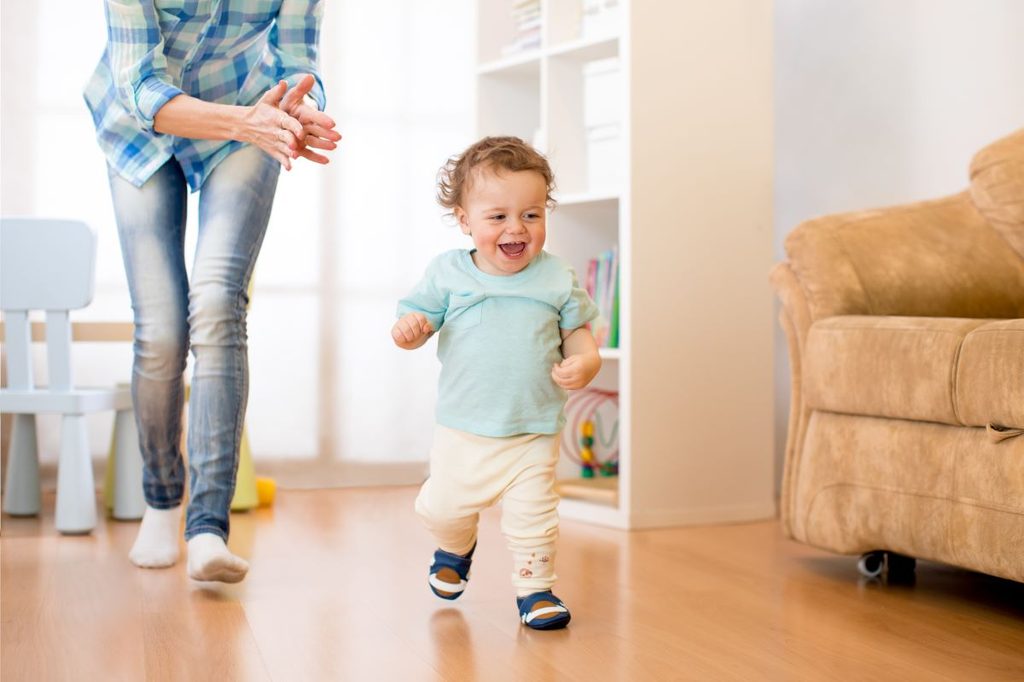
- A sudden disruption in the normal routine
- A big life change
- An illness
The main culprits when a child has a sudden change in attitude, sleep schedule, or training habits, are a disruption to their routine, a life change, or an illness. Adults know how much stress and big changes mess with their normal day-to-day life, and it is no different for children.
The addition of a new sibling can make a child go through potty training regression. The lack of usual routine, shift in attention, and disruption in sleep — especially if they have to share a bedroom — all put stress on the child. Adults don’t want to do anything when they are sick, so imagine how a small child feels when they have an illness.
How to get potty training back on schedule
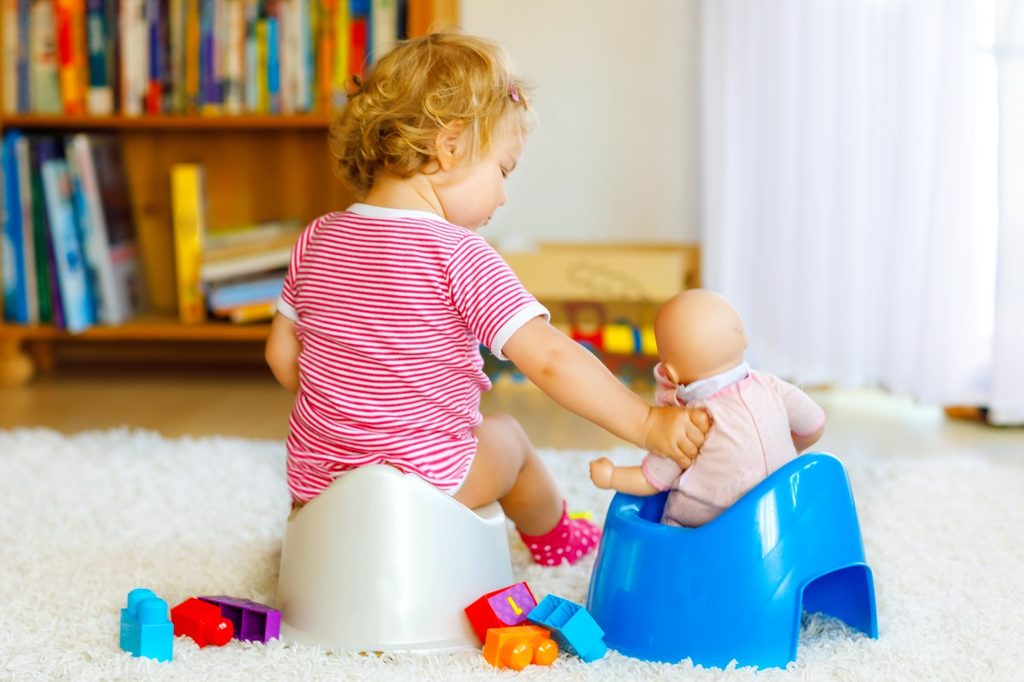
- Keep the situation calm and neutral
- Try the same system you used to initially potty train the child
- You can try a rewards system
Kids feel the energy and feed off how you react. Think of it as another milestone you get to go through with your child. The main thing is everyone keeps a positive attitude and works together to get the child retrained. Parents need to stay calm and neutral when a child has an accident or shows they don’t want to use the toilet.
You don’t have to create a new, elaborate plan to get your child back on track. You were able to potty train them the first time, so use those same methods again. It would be easier on the child because they should remember going through those routines to be potty trained before. Or, if you wish you tried something else or another way to potty train, this could be your chance to test that out.
Some parents use a reward system, whether it’s stickers or treats. It doesn’t work for every family, but it could be worth a try if you’re running out of ideas to keep your child motivated.
What you shouldn’t do

- Make a big deal about it or have negative reactions
- Use a punishment system
It will be frustrating for both the child and the parent when potty training comes undone. But parents should never show their frustration in front of the child or it will make it worse for everyone. There should be no big reactions from the adults if there is an accident.
It’s fine if you choose to do a reward system, but don’t go the other way. A punishment every time there is an accident or a child doesn’t go to the potty will only add more stress and anxiety about going, which will make the regression worse. Keep guiding your child, remind them to go to the bathroom, and help them get their confidence back, but don’t punish them for any step backward.
The journey of parenthood is filled with ups and downs, and you never know where your child will take you from one day to the next. Potty training can be a whole adventure, from start to finish. But if your child experiences a life change like the addition of a new sibling, comes down with an extended illness, or the family experiences a change like a move to a new home, it could cause your child to go through a potty training regression stage. With patience and support, you can get their confidence back up to get back into their big kid routine again.

